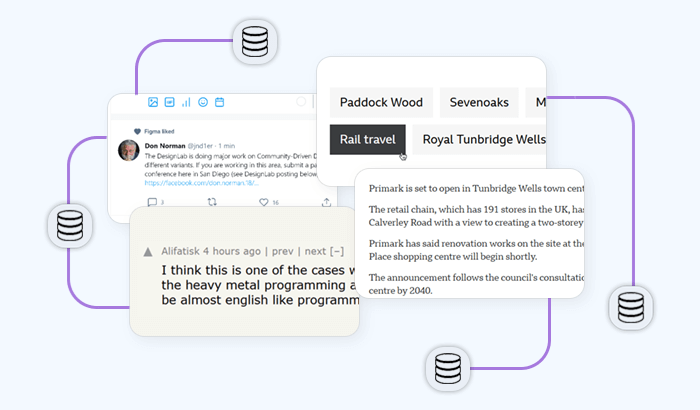- What is a Proxy Pool?
- Challenges of Single Proxies
- How Proxy Pools Work
- How Are Proxy Pools Created and Maintained?
- Why Choose to Use a Proxy Pool Over Individual Proxies?
- What are the Different Types of Proxy Pools?
- How Can a Proxy Pool Help Distribute Traffic and Improve Performance?
- Use Cases for Proxy Pools
- Benefits of Proxy Pool Services
- Are There Any Considerations or Limitations When Utilizing a Proxy Pool?
- Frequently Asked Questions


Proxy pools can be a powerful tool for your online activities like web scraping. Let’s delve deeper and learn how they provide online privacy, improve efficiency, and overcome common challenges associated with single proxy servers. In this article, we’ll help you in understanding proxy pools better: You’ll gain valuable insights into their setup, maintenance, and various types for informed online navigation.
What is a Proxy Pool?
A proxy pool is essentially a collection of multiple proxy servers that operate with a single entry point for each user. When you connect to a proxy pool, your requests are routed through one of the proxy servers in the pool, which then forwards the request and receives the response on your behalf. This system is responsible for managing the quality of proxies and performing P rotation using IP addresses assigned to specific users.
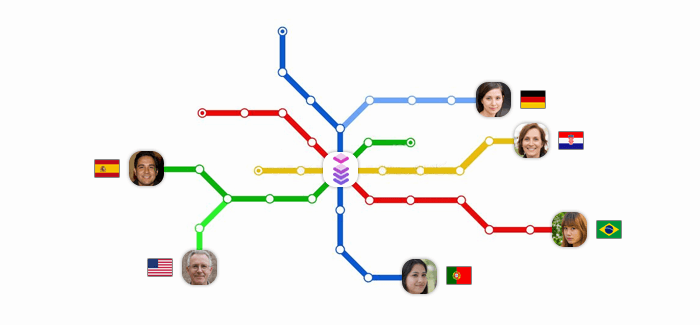
The main difference between a proxy pool and single proxy servers (for example, a dedicated residential proxy) is that an individual proxy server has one unique IP address. So, if you have five individual proxies, you'll have five different IP addresses at your disposal. In contrast, a proxy pool can offer a large number of IP addresses through one entry point, and it often includes a mechanism for IP rotation. This means that each time you make a request, the system can assign a different IP address from the pool, enhancing anonymity and reducing the risk of being blocked or detected.
Proxy pools are particularly useful for tasks that require making many requests simultaneously, such as web scraping, because they can assign a different IP to each request, thanks to the IP rotation system. This contrasts with single proxy servers, where each proxy has a fixed IP address and does not offer the same level of flexibility or anonymity.
Challenges of Single Proxies
Single proxy servers can face several challenges, including IP blocking and connectivity issues:
IP Blocking
Single proxies can be easily identified and blocked by websites, especially if they detect unusual traffic patterns or suspect that the proxy is being used for web scraping. Once a proxy's IP address is blocked, it can no longer access the target site, rendering it useless for tasks like data collection or accessing geo-restricted content.
Speed and Reliability Issues
The performance of single proxies can vary, and they may not always meet the required speed and reliability standards. Factors such as the physical distance between the proxy server and the user can add latency, resulting in slower connection speeds. Moreover, if a proxy server has low uptime, it may not be available when needed, causing disruptions in service.
How Proxy Pools Work
These features make them a robust and versatile tool for various online activities that require privacy, efficiency, and reliability:
Dynamic IP Rotation
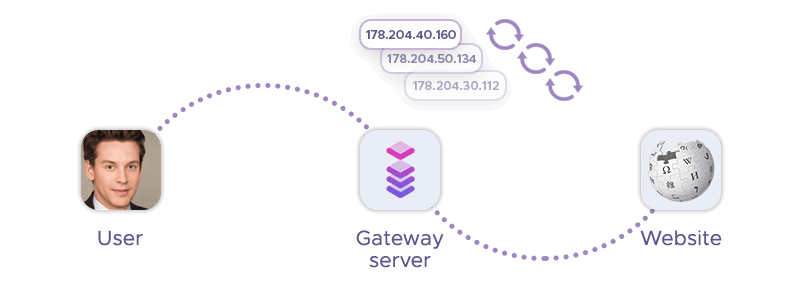
Proxy pools use dynamic IP rotation to automatically assign a different IP address from the pool for each request. This helps prevent IP blocking, as it's more difficult for the web server to detect and block a user when the IP address changes frequently. It also enhances anonymity, making it harder to track online activities back to a specific user or IP address.

Load Balancing
Load balancing is a technique used in proxy pools to distribute traffic across multiple servers in the pool. This ensures that no single server bears too much load, which can improve the overall reliability and performance of the proxy service. It also helps in managing large volumes of requests efficiently, preventing slowdowns and potential service interruptions.
Ensuring Anonymity
Proxy pools contribute to user anonymity by providing a large number of IP addresses from various locations and networks. By routing requests through different proxies, users can mask their actual IP address, making it difficult for websites or services to track and identify individual users. This is particularly useful for privacy-conscious individuals and for activities like web scraping, where anonymity is crucial.
How Are Proxy Pools Created and Maintained?
Proxy providers obtain IP addresses and configure proxy pools through a variety of methods – and they must perform ongoing maintenance to ensure the reliability and efficiency of the service. Here's a breakdown of the process:
Obtaining IP Addresses
- SDKs and Apps: Some providers insert scripts into apps via software development kits (SDKs), which allow app users to share their bandwidth and IP addresses in exchange for services or rewards.
- Partnering with ISPs: Providers may partner with internet service providers to obtain pools of residential proxies that are tied to physical locations.
- Purchasing Bandwidth: Unused bandwidth from ISPs or device owners can be bought to acquire additional IP addresses.
- Leasing IP Spaces: Some providers lease IP spaces to expand their pool of available addresses.
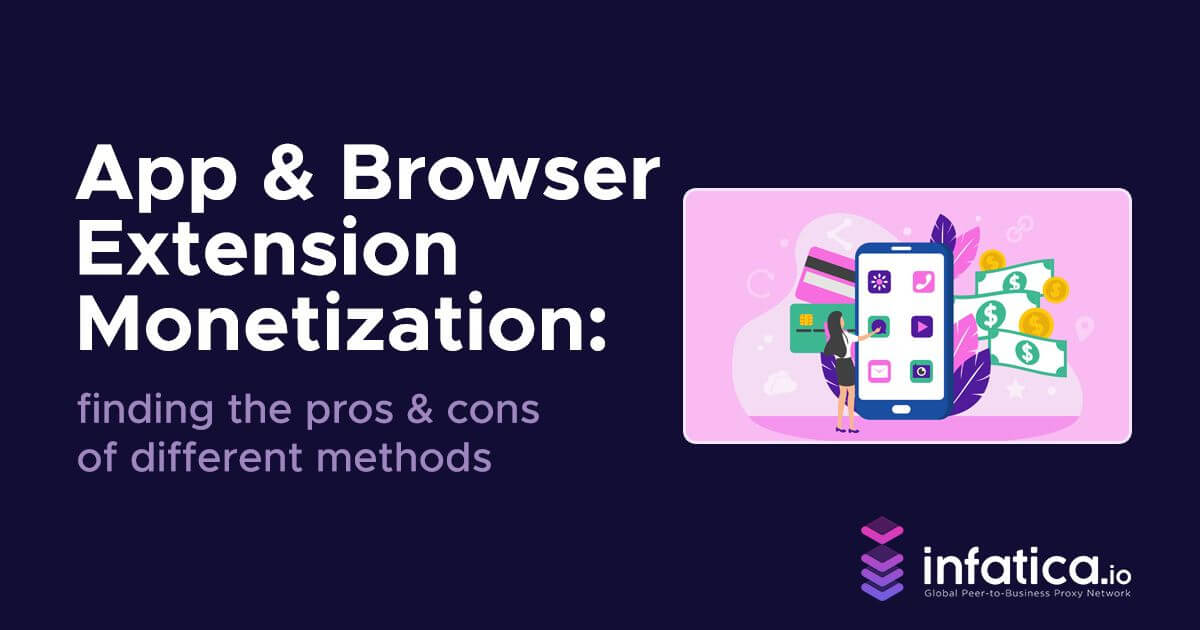
Configuring Proxy Software
Proxy configuration is performed using specialized software that can handle the rotation and allocation of IP addresses. This software is designed to manage a large number of IPs and distribute traffic using advanced algorithms to prevent pattern recognition and blacklisting. The software also includes features for load balancing, ensuring that no single server is overwhelmed, which contributes to the overall stability of the proxy service.
Ongoing Maintenance
- Monitoring: Regular performance monitoring is essential to detect and address any issues promptly.
- Rotating IPs: Dynamic proxy rotation is crucial to maintain anonymity and reduce the risk of IP blocking.
- Assessing Demand: Providers must continuously assess the demand for different IP addresses and adjust their pool accordingly.
- Auditing: Regular audits help ensure that all proxies are functioning correctly and that the pool complies with legal and operational standards.
- Automated Maintenance: Many providers use automated systems to maintain their proxy pools, which can include scripts for validating proxy availability and performance.
Why Choose to Use a Proxy Pool Over Individual Proxies?
Here are the key advantages of using a proxy pool over individual proxies:
Single Access Point for Managing Many Proxies: A proxy pool provides a single access point to manage a large number of proxies. This simplifies the process of handling multiple IP addresses, as users don't need to connect to each proxy individually. Instead, they can manage all proxies through one interface, which saves time and reduces complexity.
Self-Cleaning Capabilities: Proxy pools often have self-cleaning mechanisms that automatically remove non-functioning or blacklisted IP addresses from the pool. This ensures that the pool remains clean and efficient, with only working proxies available for use. It also reduces the risk of encountering dead proxies during critical tasks.
Suited for Tasks Needing Many Proxies: For large tasks that require a high volume of requests, such as web scraping or data mining, proxy pools are ideal because they can provide a different IP address for distributing requests. This not only helps in avoiding IP bans but also allows for a more distributed and less detectable approach to sending out requests.
What are the Different Types of Proxy Pools?
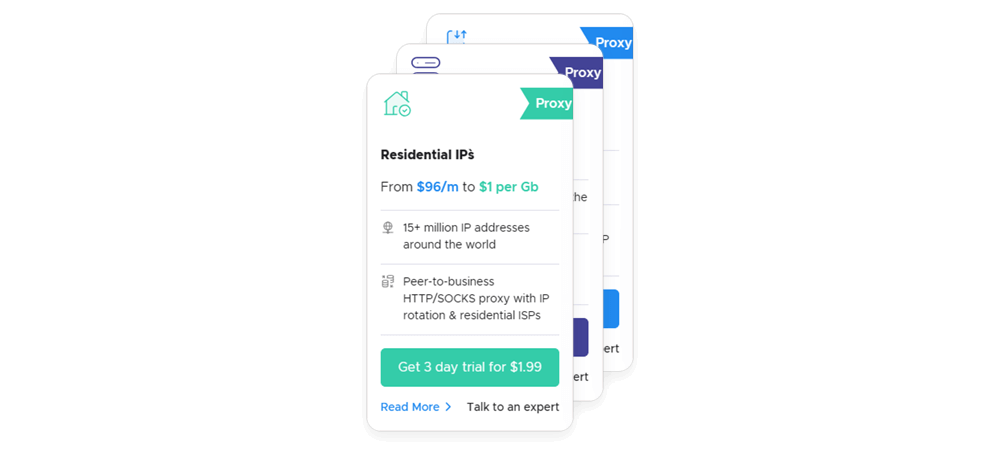
There are numerous types of proxy pools – let’s take a closer look at their strengths, weaknesses, and use cases:
Free Proxy Pool
This type does not require payment to use. While a free proxy can be appealing due to their lack of cost, it comes with several disadvantages that can significantly impact its performance and security.
Unreliability: Free proxies often suffer from being unstable and least reliable. Their public IP pool can be easily detected and blocked by websites, which means they may not be available when needed. Additionally, because they are public and often have many users, the proxies can become overloaded, leading to slow connection speeds and frequent disconnections.
Security Concerns: One of the most significant risks associated with free proxies is security. These proxies may not have stringent security measures in place, which can expose users to various threats and compromise their sensitive data. Untrusted proxy servers might record network activity and use it for malicious purposes, and there's also the risk of IP leaks, where the user's real IP address could be exposed without their knowledge.
Speed and Performance Issues: Because free proxies are shared among multiple users, the available bandwidth is often limited. This can result in slower browsing and download speeds, affecting the overall user experience. The high volume of traffic can also lead to network congestion, further reducing speed and reliability.
Datacenter Proxy Pool
Datacenter proxies consist of IP addresses that are hosted in data centers rather than being tied to residential internet connections. These proxies are known for their speed and stability, so they are often used for various online activities such as web scraping, accessing geo-restricted content, and managing multiple accounts. A datacenter proxy pool offers both shared and dedicated IP options, with some providers offering features like automatic IP rotation and city-level targeting.
However, while datacenter proxies are generally faster and more stable, they are easier to detect than residential proxies because they come from known data center ranges. Websites can identify and block proxy IPs if they detect patterns that suggest automated access, such as web scraping or frequent requests from the same IP address. To avoid bans, it's essential to use datacenter proxies properly, employing strategies like crafting human-like traffic, using proxy sessions, and smart IP rotation.
Residential Proxy Pool
Residential proxies are collections of IP addresses provided by internet service providers (ISPs) to homeowners. These IPs are associated with physical locations and are considered legitimate by most websites, making them less likely to be blocked compared to datacenter proxies.
Residential proxies are generally more reliable than datacenter proxies because they represent real consumer IP addresses. This makes them ideal for tasks that require high speed and reliability, such as web scraping, ad verification, and accessing geo-restricted content.
Websites tend to trust residential proxies more because they are indistinguishable from regular users. Since these proxies come from real devices, they blend into the crowd much better than datacenter IPs, making them harder to detect and less likely to be banned.
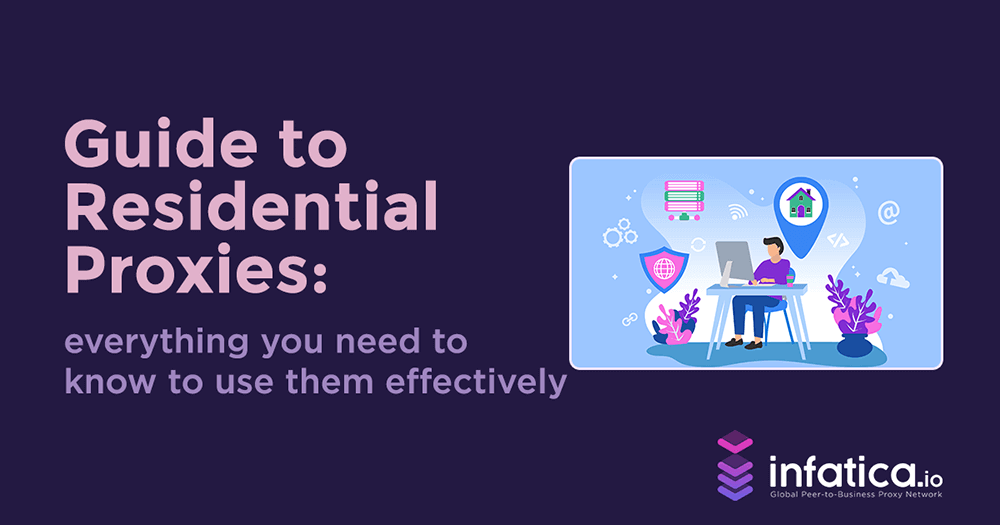
Mobile Proxy Pool
Mobile proxy pools consist of IP addresses that originate from mobile devices connected to cellular networks like 3G, 4G, or 5G. Mobile proxies are generally more expensive than other proxy types. This is due to the costs associated with mobile data plans and the maintenance of the hardware required to operate these proxies. The pricing often depends on the amount of traffic you intend to use, with various plans available to suit different needs.
Mobile proxies are harder to detect compared to datacenter proxies because they use IP addresses assigned to actual mobile devices. This makes them appear as regular users to most websites, which is why they are less likely to be blocked or flagged. Mobile proxies can rotate IP addresses, which further aids in avoiding detection and maintaining anonymity.
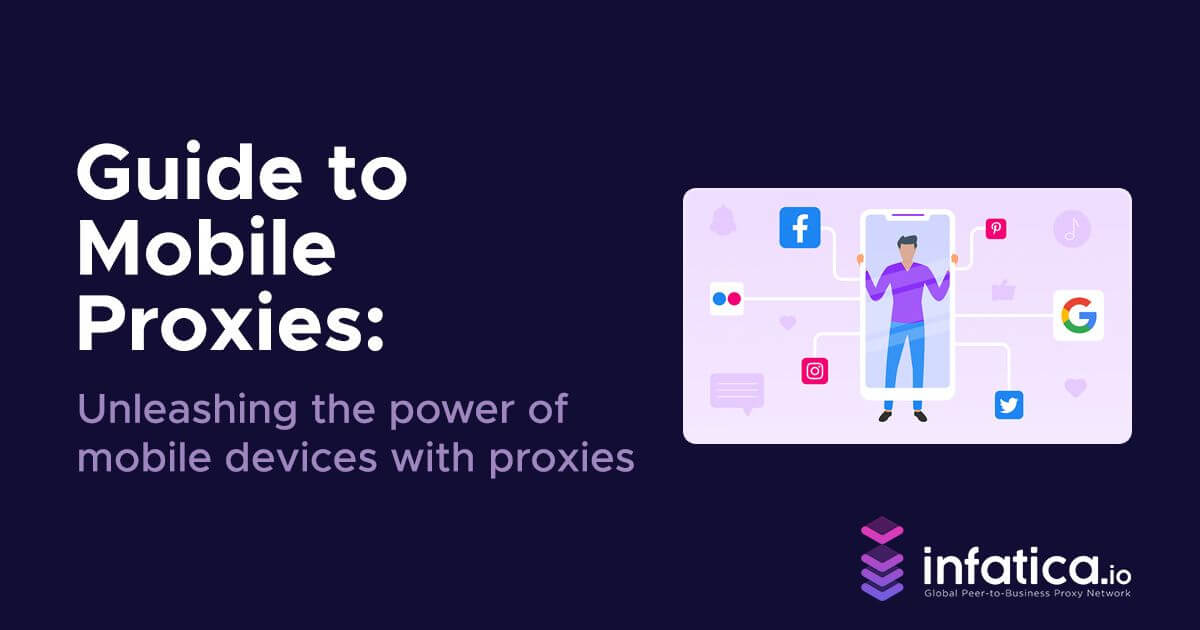
How Can a Proxy Pool Help Distribute Traffic and Improve Performance?
Using proxies can help prevent any single server from becoming overloaded and enhances the overall efficiency of the network. Here's how this process works:
- Incoming Requests: When a user or an automated process sends a request to access websites or online service, the proxy pool receives this request.
- Intelligent Distribution: The proxy pool uses algorithms to distribute traffic across the available proxy servers. This is done in a way that balances the load, ensuring that no single proxy server is overwhelmed by too many requests at once.
- Load Balancing: This distribution mechanism is a form of load balancing, which is crucial for maintaining the speed and performance improvement of the proxy service. By spreading the requests across multiple servers, the proxy pool can handle a larger volume of traffic without any significant slowdowns or disruptions.
- Improved Efficiency: As a result of this intelligent distribution and load balancing, the efficiency of accessing websites and online services is improved. Users experience faster response times, and the risk of server crashes due to overload is significantly reduced.
Use Cases for Proxy Pools

These tools are versatile tools and serve various use cases, enhancing online operations in terms of efficiency, anonymity, and access. Here's how they are applied in different scenarios:
Web Scraping
Proxy pools are essential for web scraping because they allow for the automatic rotation of IP addresses, which helps avoid detection and IP bans by websites that limit requests from a single IP address. By using different IP addresses for each request, web scrapers can scrape data without triggering anti-scraping mechanisms.
Anonymous Browsing
For individuals or organizations concerned with privacy, anonymous proxies provide a means to browse the internet privately. By routing traffic through various proxies, users can mask their real IP addresses, making it difficult for websites to track their online activities or specific country.
Market Research
Market researchers are utilizing proxy pools to access a wide range of data from different geographical locations without revealing their identity. This is particularly useful for analyzing competitors, understanding market trends, and gathering consumer insights across different regions.
Benefits of Proxy Pool Services
Proxy pool services offer a wide range of benefits, ranging from online anonymity to scraping data. Here’s a detailed breakdown of their most important features:
1. Maximum Anonymity

Online privacy is a significant benefit of using proxy servers, particularly proxy pools. Here's how they contribute to achieving online anonymity:
Masking IP Addresses: Proxy pools enhance online security and anonymity by providing a collection of IP addresses that users can utilize to hide IP addresses. This makes it difficult for websites or services to track and identify individual users, as their true IP is concealed behind the proxy's IP.
Diverse Network Sources: The IP addresses in proxy pools come from various locations and networks, adding an extra layer of anonymity. This diversity helps users avoid geographical restrictions and censorship, as they can appear to be accessing the internet from different regions.
2. Improved Responsiveness
Proxy servers can significantly improve website load times and responsiveness through a combination of dynamic IP rotation and caching:
Dynamic IP Rotation: By rotating IP addresses for each request, proxy pools minimize the risk of any single IP being throttled or banned by a website. This ensures that requests are less likely to be delayed or denied, which can otherwise impact website responsiveness. Dynamic IP rotation also helps in maintaining a steady flow of requests without interruptions, further improving the user experience.
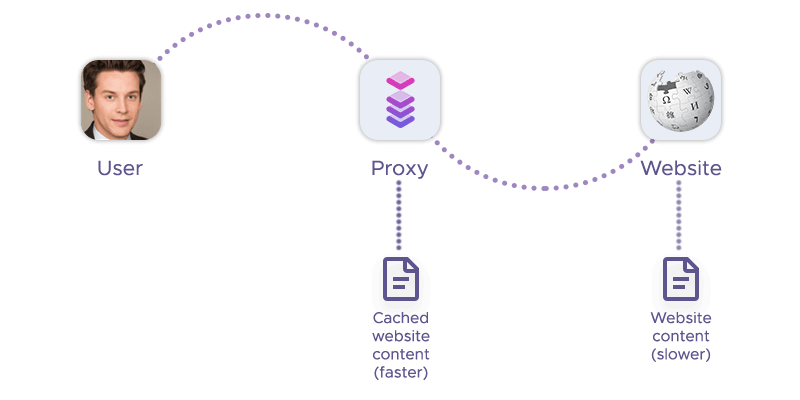
Caching: Some proxy pools may also implement caching strategies, where frequently accessed data is stored closer to the user. This reduces the need for repeatedly making requests to the original source, allowing for quicker delivery of content and improved website responsiveness.
3. Rotate IP Addresses

Proxy pools rotate IP addresses for several reasons, all aimed at enhancing the effectiveness and security of the proxy service:
- Evading Detection: Rotating IPs helps in evading detection by websites that employ anti-scraping measures. Continuous rotation makes it difficult for these websites to identify and block the IP addresses used by data scraping tools.
- Avoiding IP Bans and Rate Limiting: Websites often limit the number of requests from a single IP address. By rotating IPs, proxy pools prevent any single IP from being overused and potentially banned or rate-limited.
- Maintaining Anonymity: They change locations to make it challenging for services to track online activity back to a specific location or user.
- Enhancing Data Collection Capabilities: For tasks like web scraping, rotating IPs allows for more efficient data collection by spreading requests across multiple proxies, thus scaling capabilities and bypassing restrictions like CAPTCHAs.
- Bypassing Geo-Restrictions: Rotating proxies can provide IP addresses from various locations, enabling users to bypass geo-restrictions and access content that may be blocked in their actual location.
4. Affordable and Easy to Use
Setting up a proxy pool can vary in complexity depending on the specific requirements and the provider's system. Generally, it involves gathering a list of reliable proxy IP addresses and configuring proxy software with settings like proxy ports, authentication methods, IP rotation intervals, and connection limits. Some providers offer user-friendly interfaces and step-by-step guides to facilitate the setup process.
As for browser extensions, many are designed to work seamlessly with proxy pools. Extensions like FoxyProxy or Proxy Switcher and Manager are easy to use and allow users to switch between proxies easily and can be configured to use a proxy pool. They provide features like proxy per tab, URL pattern matching, and even color-coding for quick proxy identification. These tools automate the manual process of editing browser proxy settings, making it convenient to use proxy pools with browsers for various online activities.
Are There Any Considerations or Limitations When Utilizing a Proxy Pool?
Understanding proxy pools can be easier if we analyze several factors can affect their performance and cause inconsistent experience:
Proxy Quality: Reliability is influenced by the proxy server's uptime, server load, network congestion, and the quality of the user's internet connection. A reliable proxy ensures consistent and uninterrupted service.
Anonymity Levels: Privacy levels in a proxy pool depend on the type of proxies used (residential, datacenter, mobile) and the provider's privacy policies. Premium residential proxies typically offer higher anonymity and privacy thanks to a richer selection of geographic locations.
Violating Terms of Use: Using proxies to access geo-restricted content or for activities like scraping can violate the terms of service of websites. While not illegal, it can lead to account suspension or other penalties.
IP Blocking and Rate Limiting: Websites may implement rate-limiting or IP-blocking mechanisms to prevent abuse. A proxy pool helps mitigate this by rotating IP addresses, but if multiple requests originate from the same IP, it can still lead to restricted access.
Conclusion
You've reached the end of a thorough journey in understanding proxy pools. Equipped with knowledge about their advantages, setup, and diverse applications, you're now prepared for utilizing proxy pools effectively for your online tasks, ensuring privacy and optimal performance.













